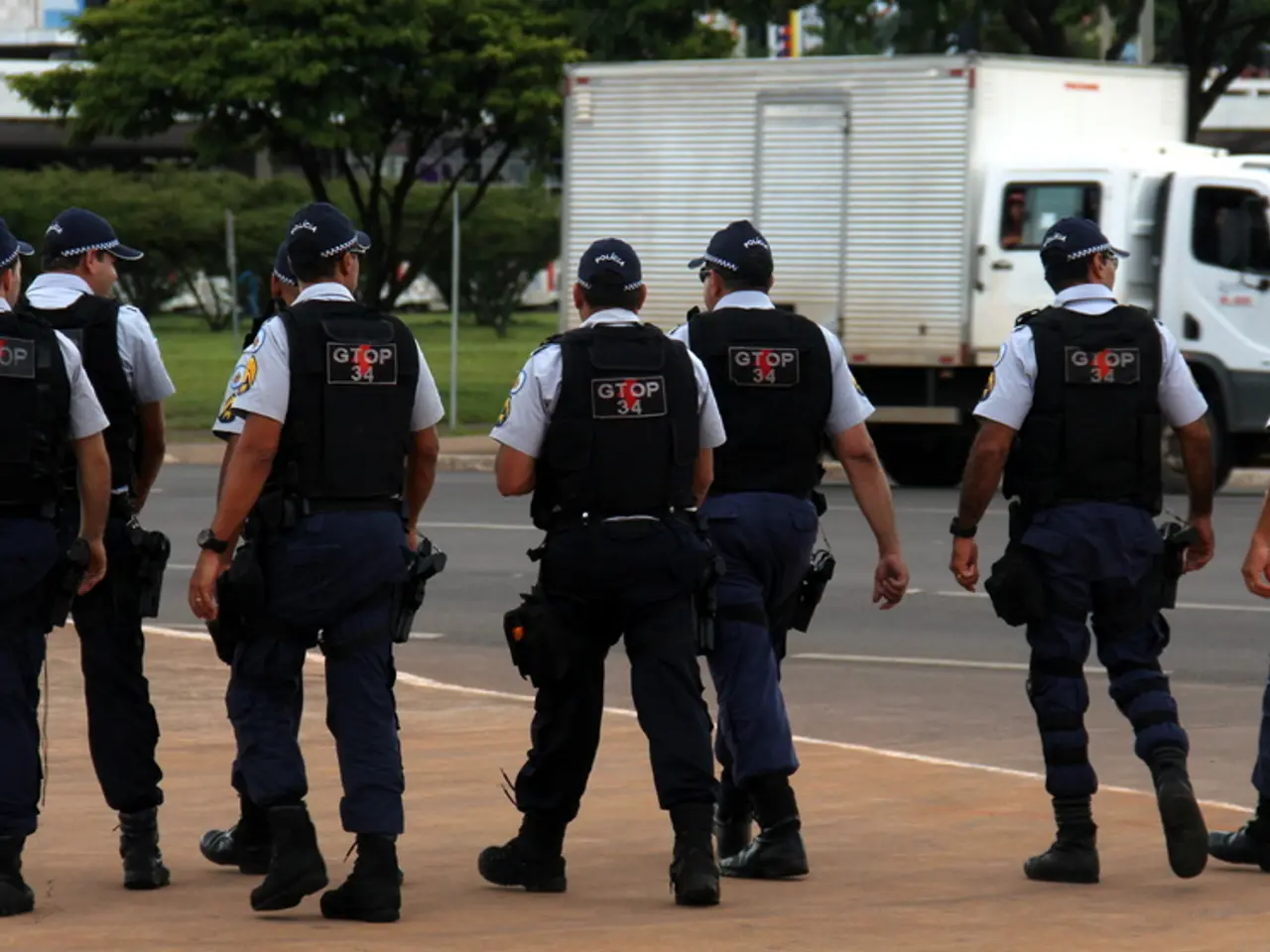Federal authorities take control of Washington D.C. police department, send in National Guard troops
In a move that has sparked widespread controversy, President Donald Trump announced plans to take over the Washington D.C. Metropolitan Police Department (MPD) and deploy National Guard troops in the city. This decision, which is currently facing strong resistance and legal challenges, has led to a complex and contentious situation.
The effort to take over the MPD involves personnel from several departments, including the Metro Transit Police Department, Amtrak Police Department, United States Capitol Police, Washington's Metro Police Department, Homeland Security Investigations, Federal Protective Service, Enforcement and Removal Operations, Drug Enforcement Administration, Federal Bureau of Investigation, Bureau of Alcohol, Tobacco, Firearms, and Explosives, United States Marshals Service, United States Attorney's Office-District of Columbia, Department of Interior, Pre-Trial Services Agency, Court Services and Offender Supervision Agency (CSOSA), and the White House.
President Trump's plan comes after he declared a public safety emergency to put the Washington police department under federal control. The D.C. Attorney General Brian Schwalb filed a lawsuit to block Trump's takeover of the MPD. After court intervention, a federal judge pushed both sides to reach a compromise: MPD Chief Pamela Smith retains command of the 3,100 officers, while the emergency police commissioner appointed by the U.S. Attorney General, DEA head Terry Cole, is currently barred from issuing directives.
Despite this compromise, President Trump's administration has deployed National Guard troops in Washington, D.C., federalizing the local police force as part of this takeover effort. This move has sparked widespread protests and criticism from D.C. Mayor Muriel Bowser, who described it as "an authoritarian push" and labeled federal policing of American citizens on American soil as "UnAmerican."
Public resistance has been visible in rallies, arrests, and social media coverage throughout the city, including areas near Dupont Circle and the White House. The situation remains contentious, with ongoing activism and official pushback from D.C. authorities.
Notably, a 19-year-old former DOGE worker was assaulted in a carjacking attempt in D.C. last week. This incident underscores the concern that increased law enforcement might not necessarily translate into a decrease in crime.
Trump has previously threatened to deploy the National Guard to D.C. and suggested a federal takeover. He promoted the current news conference as being about cleanliness and physical renovation of the capital. The President plans to remove homeless encampments from parks in D.C. and has announced a seven-day law enforcement effort in Washington, D.C., led by the U.S. Park Police. Initially, 800 National Guardsmen will be deployed.
The law enforcement will be focused on high traffic tourist areas and other known hotspots. However, Federal officers will be identified, in marked units, and highly visible. The House Judiciary Committee Ranking Democrat Rep. Jamie Raskin plans to introduce a resolution to reverse the local emergency declaration.
Trump has accused D.C. Mayor Muriel Bowser of failing to reduce crime rates and making the city less attractive. However, Bowser claims that Washington has driven down violent crime to a 30-year low and that they have done so by working with the community, police, prosecutors, and the federal government. Preliminary year-to-date crime comparisons show a decrease in overall crime by 7%, with violent crime down 26% and property crime reduced by 5%.
This complex and contentious situation continues to unfold, with the future of the Washington D.C. police department and the city's safety and security hanging in the balance.
[1] The Washington Post
[2] CNN
- The controversies surrounding President Trump's takeover of the Washington D.C. Metropolitan Police Department (MPD) have resulted in a surge of general news coverage and debate, encompassing topics like crime-and-justice and politics.
- Critics argue that the deployment of National Guard troops and federalization of the local police force may escalate war-and-conflicts within the city, leading to tensions between the residents and law enforcement.
- Meanwhile, reported crimes such as car-accidents and individual assaults, like the recent carjacking attempt on a 19-year-old former DOGE worker, raise concerns about the potential impact of increased law enforcement on crime rates.
- As the situation in Washington, D.C. continues to unfold, various media outlets like The Washington Post and CNN have been providing extensive coverage on accidents, politics, and crime-related news stemming from this complex and contentious scenario.






